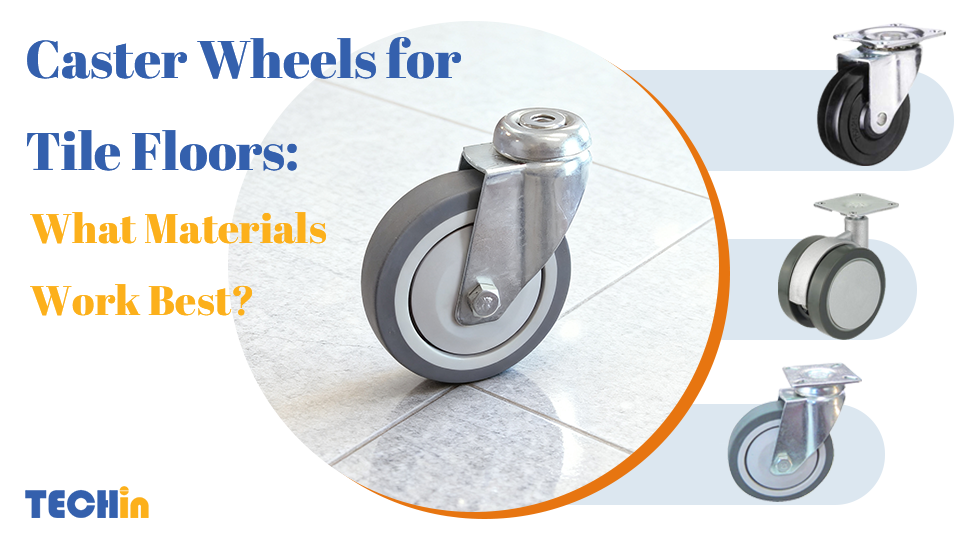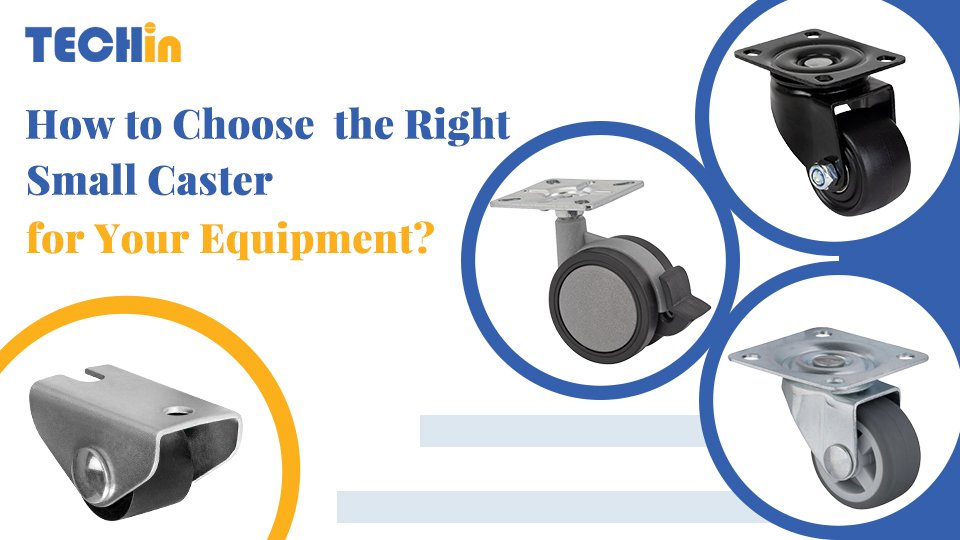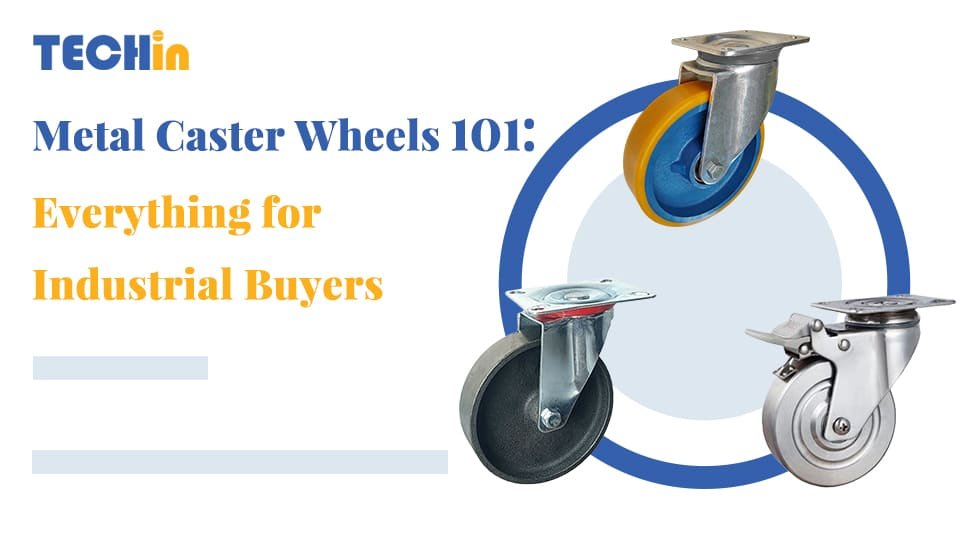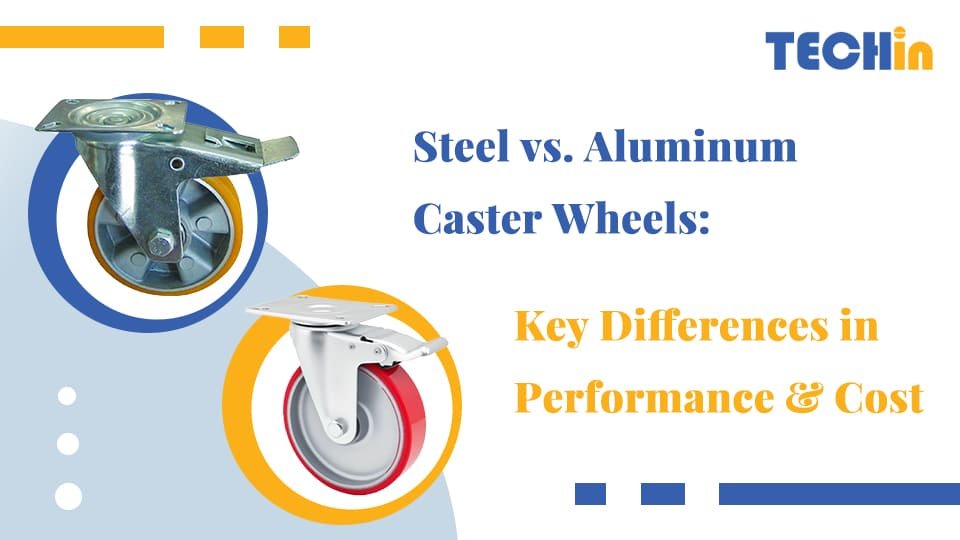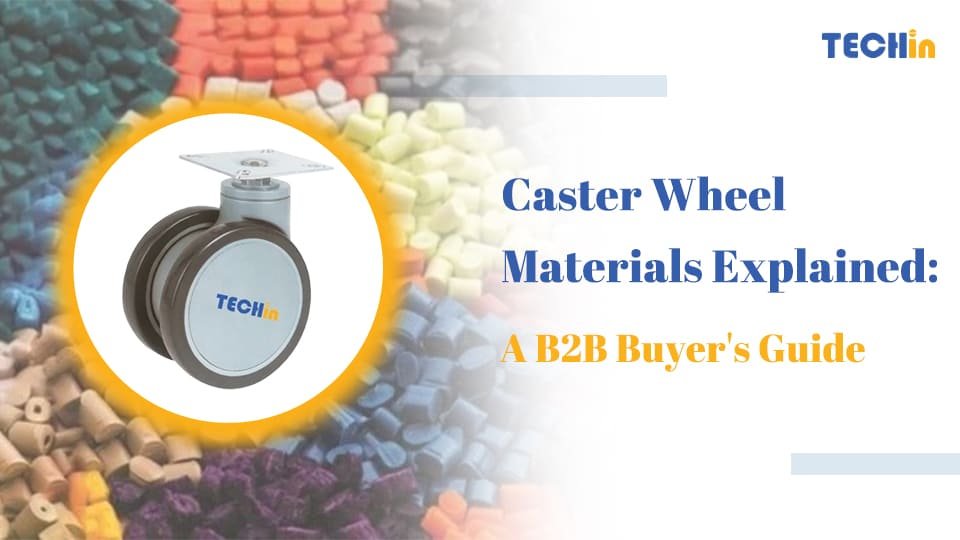Introduction
Tile floors are a durable and elegant choice for both commercial and residential spaces. However, protecting that investment from scratches, chips, and marks requires careful consideration of the equipment used on them—especially caster wheels.
Many of our customers, from procurement managers to homeowners, face the same challenge: how to select caster wheels that move smoothly and efficiently without damaging their tile floors.
For the best protection on tile floors, your ideal caster wheels are made from soft, non-marking materials like Thermoplastic Rubber (TPR), polyurethane, or soft rubber. These materials offer excellent grip and shock absorption while preventing scratches. For heavy-duty industrial use, polyurethane is the superior choice for its durability. For everyday applications in offices or homes, TPR provides the perfect blend of protection and quiet operation.
Now that we’ve identified the best materials, let’s explore the details of each option. We’ll cover their specific advantages and disadvantages to help you make an informed decision for your needs.
What Material of Caster Wheels Are Suitable for Tile Floors?
Choosing the right material is the single most critical factor in protecting your tile. Not all casters are designed for these surfaces, so let’s break down the most common materials and their suitability.
- Thermoplastic Rubber (TPR):
An excellent choice for tile floors, TPR is a soft, flexible material that won’t leave streaks or scratches. Its shock-absorbing properties ensure a quiet, smooth roll, making it ideal for light-to-medium duty use on office furniture, medical equipment, and retail carts. - Polyurethane (PU):
Polyurethane offers a unique combination of hardness and elasticity. It’s significantly more durable than rubber and can support heavy loads, which is why it’s a standard for industrial trolleys and warehouse equipment. PU wheels are also resistant to oils and chemicals, adding to their longevity in commercial environments. - Soft Rubber:
For light-duty applications on a budget, soft rubber is a viable option. It rolls quietly and is gentle on tile surfaces. However, it is less durable than TPR and polyurethane and may wear down or develop flat spots under heavier loads. It’s best suited for furniture that is moved infrequently. - Polypropylene (PP):
While polypropylene is a strong and cost-effective plastic, its hardness makes it a risky choice for tile. It can cause micro-scratches and is considerably noisier than softer wheels. We don’t recommend PP if preserving the appearance of your tile is a priority.
What Are the Best Casters for Tile Floors?
While both TPR and polyurethane are top-tier choices for tile, the best one for you depends on your specific application. Here’s how to decide between them:
- TPR Wheels:
- Offers the softest, most gentle contact with the floor.
- Perfect for residential, retail, and office environments.
- Ensures quiet, non-marking operation.
- Less suited for very heavy industrial loads.
- Polyurethane Wheels:
- More durable and wear-resistant than TPR.
- Engineered to handle heavy loads with ease.
- Resists abrasion, chemicals, and oils.
- Firm yet still safe for all types of tile.
👉 For home and office applications, TPR wheels are typically the best all-around choice. For industrial and commercial buyers, polyurethane provides essential durability while still protecting floors.
Do Caster Wheels Scratch Tile Floors?
Yes, caster wheels can scratch tile, but this damage is almost always caused by using the wrong material. Hard casters made from steel, cast iron, nylon, or low-quality hard plastic are the primary cause of scratches, chips, and scuff marks.
The risk of damage increases when:
- Heavy loads remain stationary, creating high-pressure points.
- Wheels accumulate dirt and debris, which then grind into the tile.
- The wheel diameter is too small, concentrating the entire load on a tiny area.
This is why selecting soft, non-marking wheels is the industry standard for tile floor protection.
What Kind of Caster Wheels Should Not Be Used on Tile Floors?
To prevent costly damage to your floors, it’s crucial to avoid these wheel types on any tile surface:
- Steel or Cast Iron Wheels: These are designed for rough industrial surfaces like concrete and will crack or chip tile.
- Low-Quality Plastic Wheels: These are often noisy, leave scuff marks, and offer no floor protection.
- Nylon Casters: Although durable, nylon is too hard for most tile and is a common source of fine scratches.
As a general rule, any caster that feels rigid and abrasive should not be used on tile flooring.
How To Choose Right Caster Wheels for Tile Floors?
To ensure you make the right choice, here is a practical checklist to guide your purchase:
- Match Material to Application:
- TPR → Light-to-medium duty (office, home, retail).
- Polyurethane → Heavy-duty (industrial, warehouse).
- Soft Rubber → Light-duty, budget-conscious use.
- Opt for Larger Diameters:
Bigger wheels roll more easily over grout lines and distribute weight more effectively. - Verify Load Capacity:
Ensure the caster’s load rating is sufficient for your equipment to prevent wheel failure and floor damage. - Look for “Non-Marking” Assurance:
The product specifications should clearly state that the wheels are non-marking. - Consider the Bearings:
Casters with quality ball bearings provide a smoother roll, reducing friction and effort. - Perform Regular Maintenance:
Routinely clean wheels to remove any embedded grit or debris that could scratch your floors.
Summary
In summary, protecting your tile floors comes down to selecting the right caster wheel. The safest and most effective choices are TPR, polyurethane, and soft rubber wheels. TPR is ideal for everyday use where quiet operation is key, while polyurethane is the clear winner for heavy duty applications. By avoiding hard materials and following this guide, you can ensure your equipment performs beautifully without compromising the integrity of your floors.

